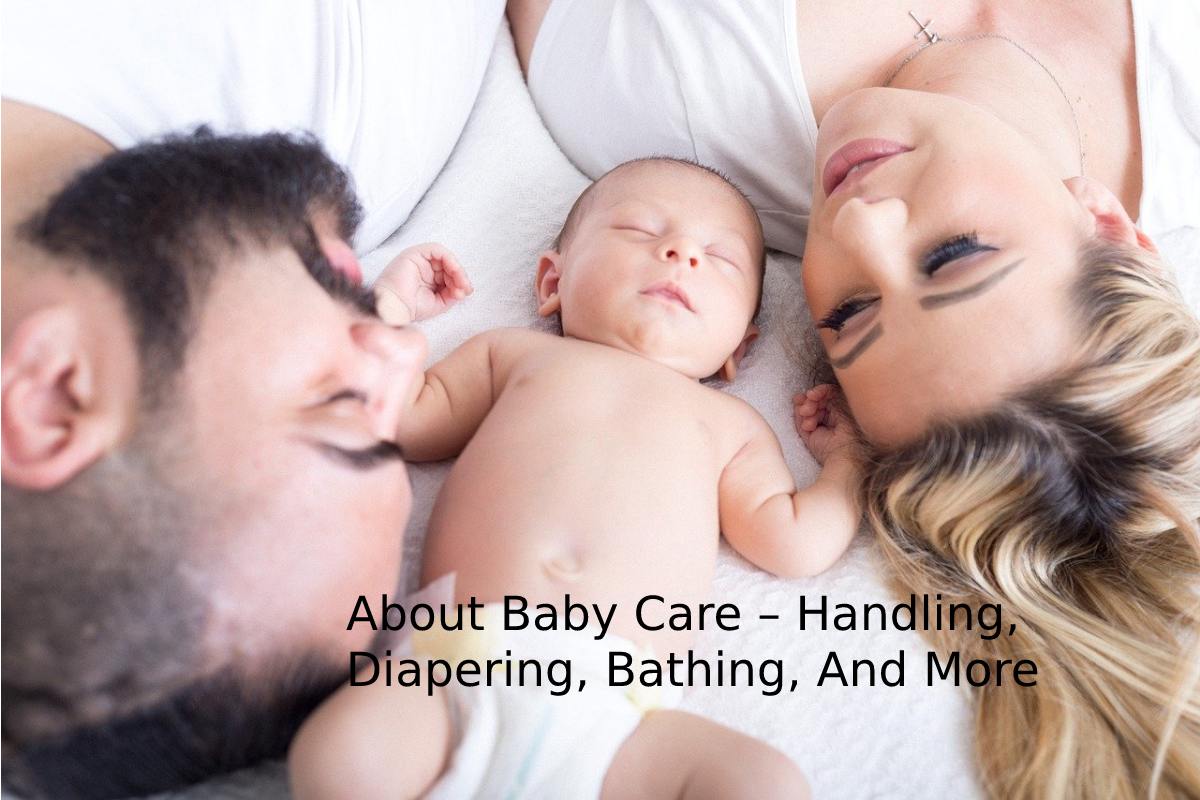Table of Contents
About Baby Care
Baby care is a responsible neighborhood teen to help you for a short time after the birth. A new born baby can feel small and fragile. learn how to care for your new born
A Monitor For First Time Parents
She has been through pregnancy, labor, and delivery and is now ready to go home and start living with her baby. However, when you are at home, you may feel like you have no idea what you are doing!
These tips can help even the most worried new parents feel confident about caring for a new born in no time.
Get Help After Delivery
À Consider seeking help during this time, which can be very hectic and overwhelming. In the hospital, speak to the experts around you. Many hospitals have nutrition specialists or lactation consultants who can help you start breastfeeding or bottle feeding. Nurses are also a great reserve to show you how to hold, burp, move and care for your baby.
For help at home, you can hire a baby sister, postpartum doula, or responsible neighborhood teen to help you briefly after the birth. Your doctor or hospital can help you find information about home help and may refer you to health authorities.
Handling new Born
If you haven’t expended a lot of time with new born babies, their frailty can be intimidating. Here are some basics to remember:
- Wash your hands (or use hand sanitizer) earlier touching your baby. New born do not yet have a solid immune system, don’t they are at risk of infection. Make sure everyone who handles your baby has clean hands.
- Support your baby’s head and neck. Rock your head when holding your baby, and support your head when carrying the baby upright or lying down.
- Never shake your new born, playfully or in frustration. Shaking can cause brain bleeding and even death. If you need to stir your baby, don’t shake him; tickle your feet or gently blow on your cheek.
- Ensure your baby is securely attached to the carrier, stroller, or car seat. Limit any activity that might be too rude or spirited.
- Remember that your new born baby is not ready to play roughly, such as being shaken on his knees or tossed in the air.
Everything About Changing Diapers
Before you bring your baby home, you will likely decide whether to use cloth or disposable diapers. Whatever it is used, your little one will get the diapers dirty about ten times a day or about 70 times a week.
Before changing your baby’s diaper, make sure that you have all the utensils close at hand so that you don’t have to leave your baby unattended on the changing table. You will need:
- a clean diaper
- Bra (when using pre-folded cloth diapers)
- Diaper ointment
- Diaper towels (or a bowl of warm water and a clean washcloth or cotton ball)
The hasty is usually red and bumpy and will go away in a few days with warm baths, a little diaper cream, and a little while without a diaper. Maximum rashes happen because the baby’s skin is tender and irritated from a wet or poopy diaper.
To Prevent Or Cure Diaper Rash, Try These Councils:
- Change your baby’s diaper frequently and as chauve as possible after a bowel movement.
- Gently fresh the area by mild soap and water (towels can sometimes irritate), then apply a thick layer of diaper rash or “barrier cream.” Zinc oxide creams are preferred because they create a moisture barrier.
- If you use cloth diapers, wash them with fragrance-free detergents.
Bathing Basics
You must give your baby a sponge bath till:
the umbilical string falls off, and the belly key heals completely (1 to 4 weeks)
healthy circumcision (1 to 2 weeks)
Two or three periods a week in the first day is OK, and more frequent baths can dry out the skin.
Also Read: What Is Online Education? – Benefits Of Online Education, And More
Have These Things Ready Before You Bathe Your Baby:
- a soft, clean cloth
- Mild unscented baby shampoo and soap
- a soft brush to stimulate the baby’s scalp
- Towels or blankets
- a clean diaper
- Clean clothes
Sponge baths. Choose a safe, level external (such as a changing table, floor, or counter) for a sponge bath in a warm room. Fill a sink, if nearby, or a container with lukewarm (not hot!) Water. Undress your baby and shawl them in a towel. Using a washcloth dampened with water (or a clean cotton ball), wipe your baby’s eyes, starting with one eye, wiping from the inside corner to the outside corner. Use a spotless corner of the washcloth or some other cotton ball to wash the other eye. Clean your baby’s nose and ears with a damp cloth. Then moisten the material again and gently wash and dry your face with soap.
Tub bath. When your baby is ready for a bath, the first few baths should be gentle and short. If you get angry, go back to the sponge baths for a week or two, then try again.
The Basics Of Sleeping
As a new parent, you may be amazed to learn that your new born baby, who seems to need you every minute of the day, actually sleeps 16 hours or more!
New born typically sleep 2-4 hours. Don’t Imagine Your Baby to Sleep Through the Night – Babies’ digestive systems are so small that if they haven’t been fed for 4 hours (or more often if your doctor is concerned, they will need to eat and wake up if they haven’t been provided for 4 times (or more often if your doctor is worried) they need food every few hours and have to wake up; weight gain).
Also Read: What Is Online Banking? – Advantages, Disadvantages, And More

